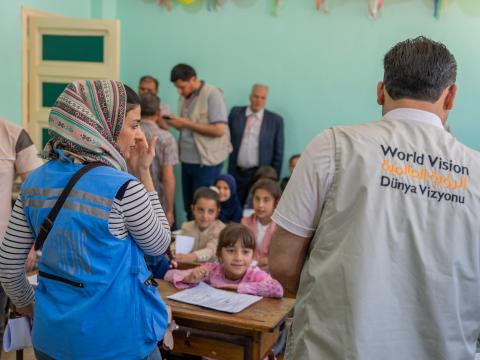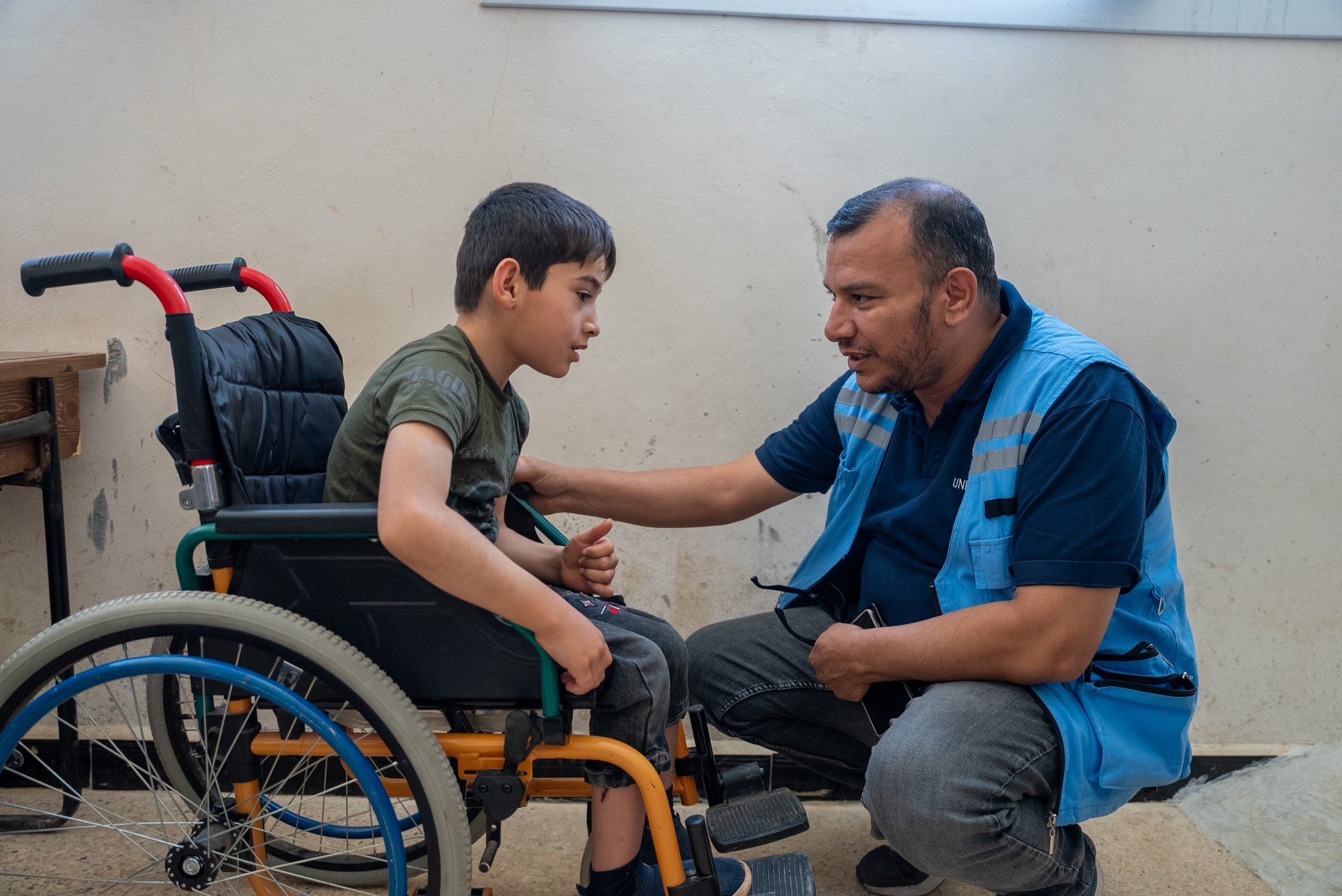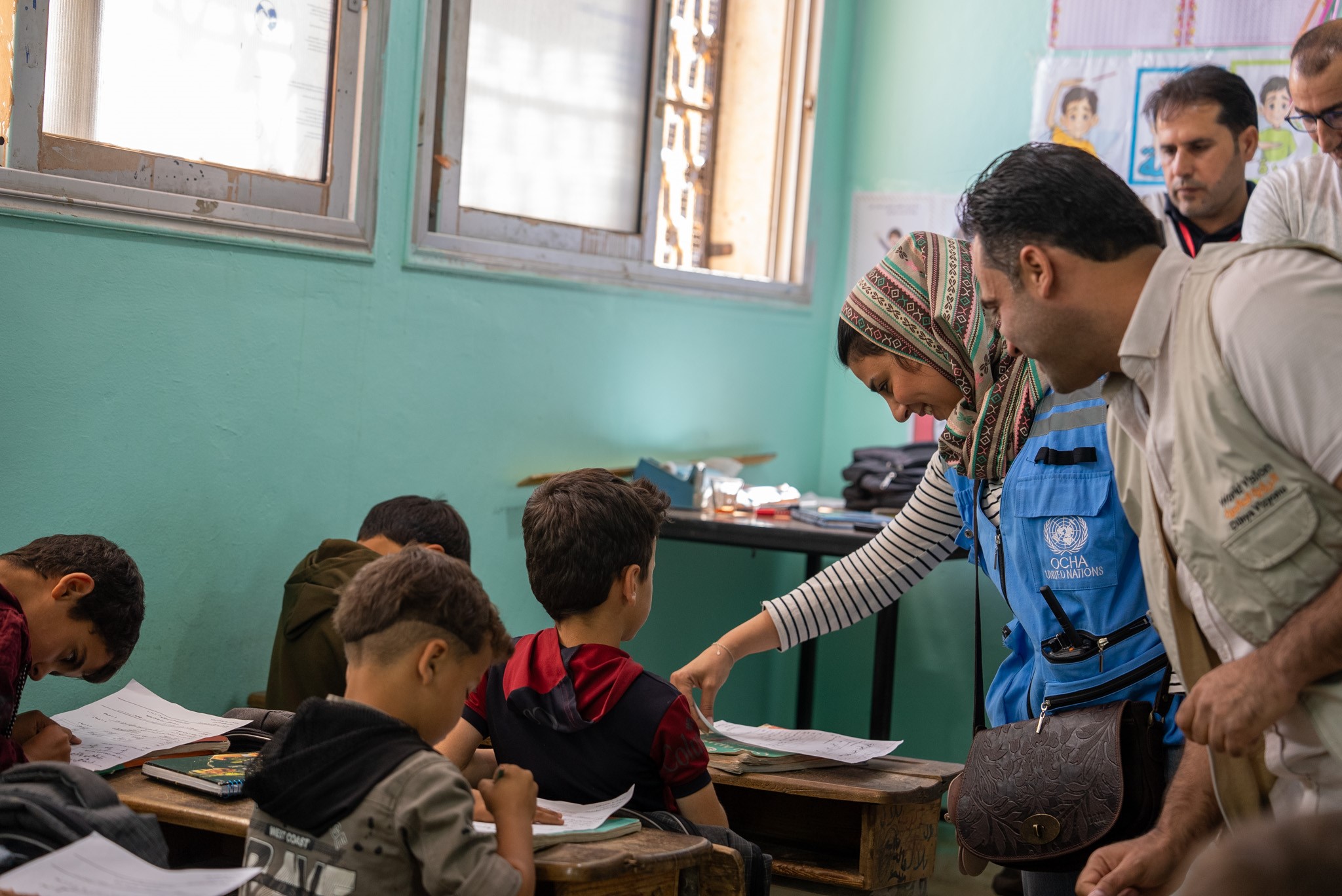Ink on Paper Comes to Life


- 1. States Parties recognize that a mentally or physically disabled child should enjoy a full and decent life, in conditions which ensure dignity, promote self-reliance and facilitate the child's active participation in the community.
2. States Parties recognize the right of the disabled child to special care and shall encourage and ensure the extension, subject to available resources, to the eligible child and those responsible for his or her care, of assistance for which application is made and which is appropriate to the child's condition and to the circumstances of the parents or others caring for the child.
3. Recognizing the special needs of a disabled child, assistance extended in accordance with paragraph 2 of the present article shall be provided free of charge, whenever possible, taking into account the financial resources of the parents or others caring for the child, and shall be designed to ensure that the disabled child has effective access to and receives education, training, health care services, rehabilitation services, preparation for employment and recreation opportunities in a manner conducive to the child's achieving the fullest possible social integration and individual development, including his or her cultural and spiritual development.
Article 23
- 1. States Parties recognize the right of every child to a standard of living adequate for the child's physical, mental, spiritual, moral and social development.
Article 27
- 1. States Parties recognize the right of the child to education, and with a view to achieving this right progressively and on the basis of equal opportunity.
Article 28
- 1.States Parties agree that the education of the child shall be directed to:
(a) The development of the child's personality, talents and mental and physical abilities to their fullest potential.
Article 29
- 4. In accordance with their obligations under international humanitarian law to protect the civilian population in armed conflicts, States Parties shall take all feasible measures to ensure protection and care of children who are affected by an armed conflict.
Article 38
This is not mere ink on dried paper. This is the United Nations at the Convention on the Rights of the Child text adopted and opened for signature, ratification and accession by General Assembly resolution 44/25 of 20 November 1989 entry into force 2 September 1990, in accordance with article 49.
Every child has the right to enjoy the articles mentioned in the text without being discriminated against recognising the child’s welfare at every stage and circumstance. Such legislations are put into practice to protect the most vulnerable specifically children caught in situations they need the most protection, i.e. conflict and instabilities.

Yassin* is one of these children who were caught in a vortex of instabilities and misfortune. Yet, determination never left his mind. His rights are mentioned in the statement above but how will he enjoy them?
The eight-year-old boy was born with a disability. As soon as his mother held him in her arms, she knew he needed extra care and she vowed to give him the world.
Yassin suffers from lower limb paralysis affecting his mobility. He uses a wheelchair to move around requiring assistance and support from his mother. She gave him everything she could in their home but what about the outside world? Would it be as understanding as his family, as supportive and as encouraging?
Yassin is not alone in this. Almost 28 per cent of children in Syria suffer from disability. Shockingly, many facilities, including schools are not prepared to welcome them or respond to their needs. This is one of the main challenges they face. As soon as they step outside, they encounter inaccessible entry igniting frustration with the lack of inclusion.
But that did not diminish Yassin’s dreams of dependence and learning.
While Yassin was growing up, he caught glimpses of other children going to school, carrying their backpacks, discussing math problems and staying behind to do their homework that should have been done the night before. He was happy to see other children learning and he wanted that too.
So, he began accompanying his mother to school, “my mother’s a teacher [at World Vision Syria Response school] so I’d go along with her,” he says. This way his mother would be able to support and help him move around easily. But Yassin’s dream was not fulfilled, “it was a girl’s school and I felt upset because I could not be with my friends,” he shares. Yassin’s dream was slowly fading away. Due to lack of accessible equipment, his right receiving education was being taken away.
His mother took notice of his situation. So she was thrilled after hearing that there is ongoing work at World Vision Syria Response boy's school to make people with disability feel more welcome. When his mother broke the joyous news to him, “I was thrilled when my mother told me that I would soon be going to school every day with all my friends,” he says.
Finally, Yassin is going to school and accessibility is not an issue. Entrances, lavatories, classrooms, stalls and stairs are not a hindrance. He can focus on his studies now. He also received a wheelchair so he felt more comfortable.
And so, the learning begins, a back to learning campaign was kick-started encouraging children to begin their semester, school activities were set in place, parents management council was elected, school management committees were scheduled and most importantly psychological support workers were provided to support children during their journey.
Yassin feels at home surrounded by his friends and the books he always wanted to learn about, “I didn't want the holidays to come because I was so happy at school with my friends, my teacher, and the games in the psychological support room,” he shares.
His journey to equitable education is a right every child with a disability should experience. Thanks to funding from Syria Cross-border Humanitarian Fund (SCHF), 20,000 children received education services and psychological support.
*Name has been changed to protect identity.
